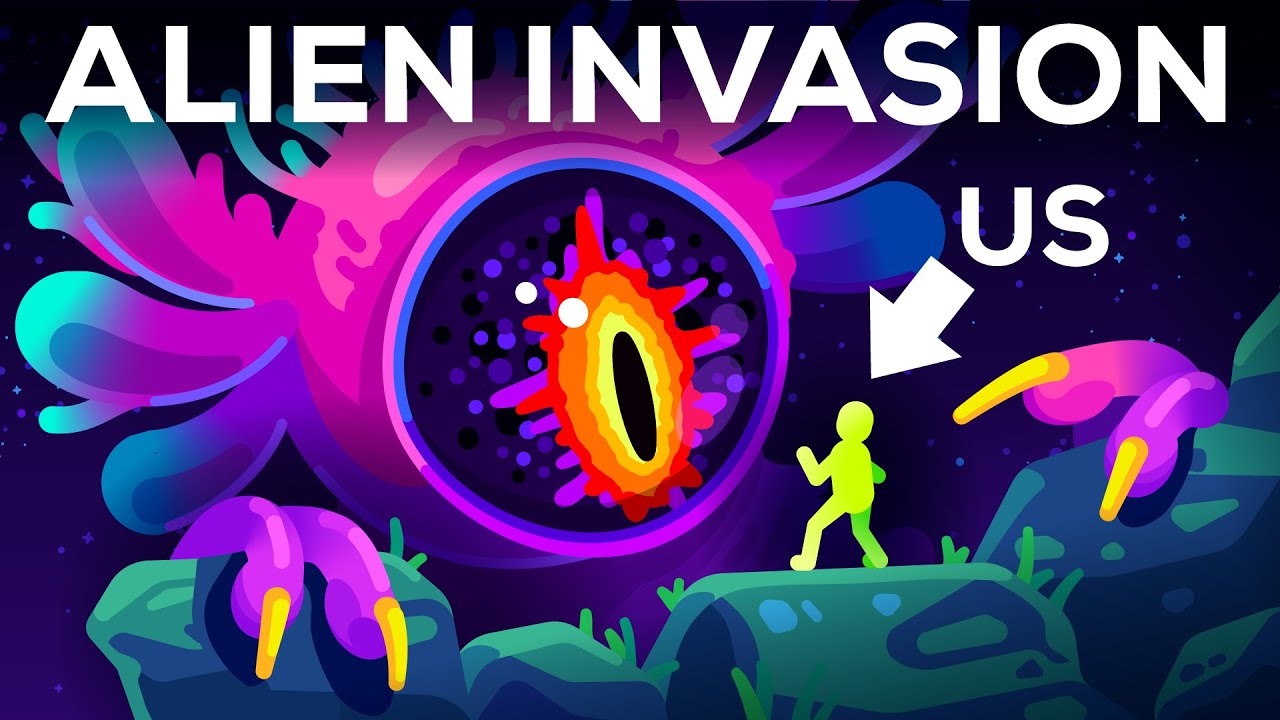There's something so funny about extrapolating modern human behavior up to hypothetical alien civilizations. It's a part of our science fiction that hasn't changed much from the days when life on Mars or a water-rain soaked Venus was still Hard Since Fiction. Like, they even admit 99.99% of the video is imaginary -- but they can't imagine anything else? Silly.
At 5:32 they show this stylized progression from hunter-gatherers, to agrarian settlements, to modern cities. What's telling is that the agrarian settlements are bleak beige and yellows and oranges; poop and skeletons piled up everywhere. The modern city is a pristine and healthy green, with roads and airplanes and clean water. If there's any consideration to the consequences of present day life, it's a footnote. A bug to be ironed out in the next technological rollout.
They just love to end videos on a sort of 'Cosmic Call to Arms', where humanity goes on to colonize the stars. Never any consideration of what may need to happen before, the work and organization necessary to facilitate such a lofty undertaking. Modern problems are barely worth considering, because we'll just engineer our way around it, by Jove!
If it was just Kurzgesagt, I probably wouldn't bother to write this out. But it's the most prominent and competently produced version of a narrative that seems to be everywhere. There's also a lot of lefty analysis and breakdown of these tropes. But I think that's only half of the work necessary. You can't just shoot down a story and call it a day. You have to fill that space with a more compelling story, give people something to think about and contemplate instead. Otherwise the old story just hangs around, getting bigger and more silly with each refutation it survives.


Well, that depends on how much time they're willing to spend traveling. Assuming that they would have to get here in a single human lifetime is already a very anthropocentric view.
Gotta remember to take into account exponential growth too, imagine a single self-replicating probe sucking up resources, then splitting into a couple hundred tiny probes every time it reaches a new star-system and you'd have total galactic coverage within a few tens of thousand years. These probes can be very small, possibly allowing for close to lightspeed propagation, and our galaxy is only 100k lightyears across. At that point, you would have a decent picture of where in the galaxy interesting shit is going to happen at some point, and send out actual first contact fleets. Those diplomats would probably never see their own civilization again, but they might not really care about that.
If UFO's are real and alien, they would most likely be automated information-gathering probes and who knows if you could even get the attention of their original makers
Ok but those probes would have to all accelerate to those near-light speed velocities as well, that would require insane amounts of energy.
Energy is cheap when you have probes able to construct fusion reactors from whatever dirt is lying around any given solar system, and they wouldn't have to reach like 0.9999c, something like .7c is fine, and not nearly as expensive.
https://www.youtube.com/watch?v=Uiktk67vFps
The great filter is because a first contact probe programmer set a variable wrong. Checks out.